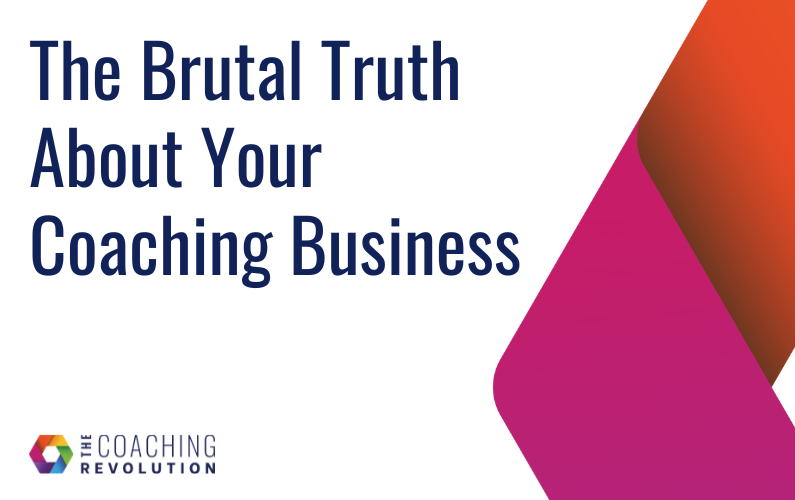“The truth does not change according to our ability to stomach it” Mary Flannery O’Connor
I read this quote and it stopped me in my tracks. It stopped me so completely that I had to stop what I was doing to write this article. It stopped me because it is a) true and b) directly relates to the coaches that want to build coaching businesses.
- The untruth that I’m thinking about in particular is the one that you may believe right now, the one that starts with the idea that if your coaching is good enough, your clients will find you.
- That untruth then extends itself to the notion that if you talk to enough people about your coaching, you will find enough clients who can – and will – pay you a professional rate for coaching.
- The untruth which supports the idea that you already have all the skills and knowledge you need to build a financially viable coaching business.
- The untruth that is more palatable than the actual truth.
The Brutal Truth
It’s not the best coach who will succeed, it’s the best marketer. This isn’t my opinion, it’s a fact. That doesn’t stop it from causing outrage though.
Your ability to coach and your ability to market your coaching business are two utterly different skillsets. You need to master both to have a coaching business that will earn you enough income to become your main source of income.
You can be a fantastic coach, indeed you could be the best coach in the world, but that doesn’t automatically make you the best marketer. In fact, your coaching ability is entirely unrelated to your marketing ability. The problem that many coaches have is that their coaching skills are great, but their marketing skills are at best mediocre and at worst non-existent. That’s often because they feel that marketing is grubby, underhand or in some other way undesirable.
Marketing skills are valuable. In fact, they might actually be more valuable than the coaching skills I use them to support. I say this because the reason that we don’t work with unqualified coaches is that the skills we teach are incredibly effective and I don’t want to equip poor coaches with them. I won’t be responsible for the proliferation of poor coaches. Good marketing is both effective and comfortable.
How Do You Feel?
May I suggest that you stop for a moment and reflect on how reading what I’ve written is making you feel? If you feel indignant or angry, perhaps you could reflect on why that might be?
Could I encourage to you book a conversation with me to discuss how you feel? And perhaps we could talk about how you could improve your marketing skills?
As Mary Flannery O’Connor said, the truth does not alter according to our ability to stomach it.
